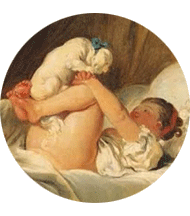
Bach to the blues, our emotions match music to colors
Our brains are wired to make music-color connections depending on how the melodies make us feel, according to new research from UC Berkeley.
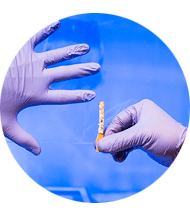
Screening those at the highest risk for lung cancer
UC's Tobacco-Related Disease Research Program administers the California Cancer Research Fund, made possible by taxpayers who donate money by checking line 413 on their state income tax forms. TRDRP will utilize that fund to focus on lung cancer screening, including new tests to detect the disease in its early and treatable stages.
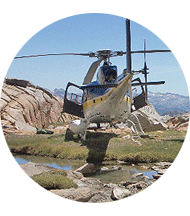
Offering care and calm in the wild
Doctors at a UCSF Fresno program don't just provide emergency care to those who become sick or injured in the backcountry. They research lifesaving techniques and have become leading specialists in wilderness medicine.
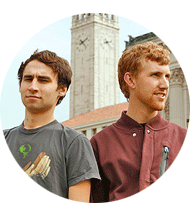
Turning big ideas into solutions
UC's Center for Information Technology Research in the Interest of Society (CITRIS) rewarded teams of students for developing innovative tools that may prove handy for politics, health care and seeking social services.
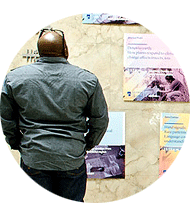
Graduate students take their research to the Capitol
They delivered a message to legislators: graduate student research is central not only to the future of UC, but to that of the state and the nation as well.
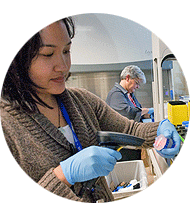
Spit in time may help save lives
An ambitious project, teaming Kaiser Permanente and UCSF researchers, takes aim at genetic links to disease.
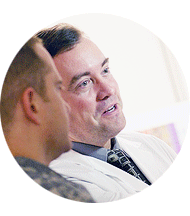
Proving a concept and leaping the `valley of death`
An instrument to quickly detect traumatic brain injury, a vaccine to save unborn calves from a deadly bacterium and a technology to clean up grimy water are among research projects getting a boost from a new UC program. New grants will help move critical research out of the lab and into the market.
Building the bridge of engineers and environmentalists
A global network, Engineers for a Sustainable World, is now headquartered at UC Merced. Students work on innovative projects from supplying solar-generated electricity to villages in India to replacing polluting diesel fuel on international cargo ships.
Ovarian cancer: UC researchers play key role in new treatments, analysis
For many women, a diagnosis of ovarian cancer is a death sentence. More than 14,000 women die of it each year. With symptoms that mimic other ailments, it often is diagnosed at a late stage. The five-year survival rate is just 31 percent; when the cancer becomes resistant to traditional chemotherapy, newer drugs have held it at bay for a few months at best.
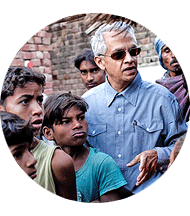
Keeping the planet from being cooked
Reducing black carbon could immediately slow global warming and save millions of lives, says a UC San Diego scientist. And simply providing cleaner-burning stoves in rural villages can help do the trick.
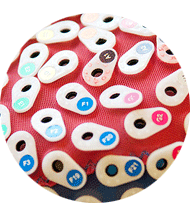
Looking at how we listen
UC graduate students are known for their braininess. At UC Berkeley, Adeen Flinker is getting a picture of the brain's intricacies and how the human auditory system is wired.
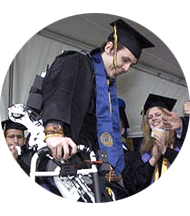
UC researchers help restore mobility to two paralyzed people
Thanks to UC researchers, two people paralyzed in car accidents have done the seemingly impossible: They have taken steps on their own.
Combining a prevention pill with community treatment programs
UC's California HIV/AIDS Research Program has funded studies to test a HIV prevention pill among high-risk HIV-uninfected people in the state.
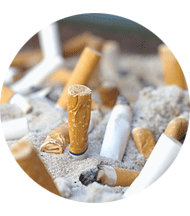
Reaching underserved smokers before lung cancer turns deadly
UC's Tobacco-Related Disease Program administers the California Cancer Research Fund, made possible by taxpayers who donate money by checking line 413 on their state income tax forms. This year, research will focus on early lung cancer screening, especially in underserved communities, and the barriers to seeking life-saving screening and care.
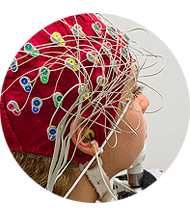
Making a game out of improving the 'sticky' brain
UCSF neuroscientists have found that by training on attention tests, people young and old can improve brain performance and multitasking skills.
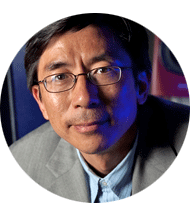
Quieting the ringing in the ears
A UC Irvine bioengineer, with help from a suffering patient, developed an MP3 player-like device to ease, or even silence, the debilitating noise that afflicts people with tinnitus.
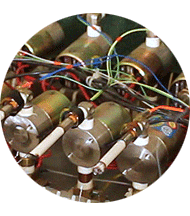
After the smoke clears, danger still lurks
Thirdhand smoke is a new frontier, and UC's Tobacco-Related Disease Research Program has assembled a consortium of investigators to study the health risks caused by the remnants of cigarette smoke.
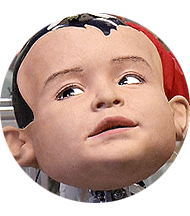
Crossing the 'uncanny valley'
It's when a humanlike robot, android or animated creature gives you the creeps. A UC San Diego scientist is looking at what's going on in our brains when we view these characters.
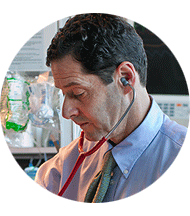
Stem cell research heads to the clinic
For more than a decade, stem cell science has raised hopes of cures for a host of diseases and illnesses. Now, the research pace has picked up with lab discoveries moving to tests of therapies for patients.
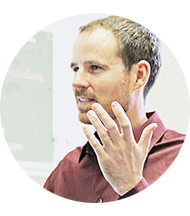
Car crash website tracks the really big hits
For those wanting to know about risky places to drive, or even walk, UC Berkeley researchers have designed a tool for sorting through and mapping all of the serious traffic collisions in the state.
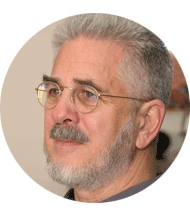
Center chases truth about state's crises
A multicampus center connects researchers and people in the community to address poverty, employment, health, the environment and other California issues.
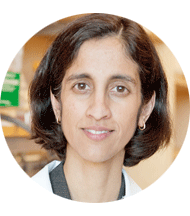
Big help in small packages
UCSF bioengineer Tejal Desai builds medical implants, with parts as tiny as human cells, that may be used to treat diabetes, kidney failure and other diseases.
Experts brief legislators on tobacco tax benefits
State budget savings and health care costs will decline sharply if funding for the state's tobacco control program is not increased to make up for inflation, according to UC researchers.
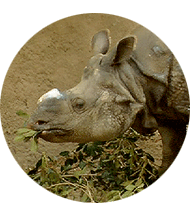
First-ever Zoobiquity conference teams docs, vets to seek cures
Lions, tigers and people - oh, my. A new research initiative will match medical and veterinary students from different UC campuses to work on projects important to both animal and human health.
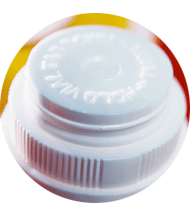
New medical, social strategies aim to keep high-risk youth free of HIV infection
Studies funded by UC's California HIV/AIDS Research Program hope to curb HIV in the state by engaging people at high risk in innovative prevention efforts in their communities.
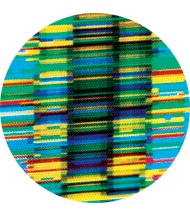
New strategies pinpoint breast cancer risk, spare many from agony
With the help of donations from state tax filers, the California Breast Cancer Research Program funds innovative research. Studies have led to simple tests that guide treatment by distinguishing non-invasive forms of the cancer from aggressive types.
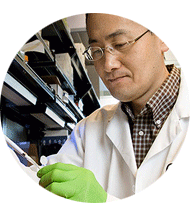
Shinya Yamanaka, Gladstone and UCSF scientist, wins 2012 Nobel Prize in Medicine
Shinya Yamanaka has won the 2012 Nobel Prize in Physiology or Medicine for his discovery of how to transform ordinary adult skin cells into cells that, like embryonic stem cells, are capable of developing into any cell in the human body.
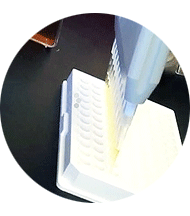
Persistence, passion lead to new attack on parasitic diseases
Based on research by UCSF and UC San Diego, the FDA has identified an arthritis treatment as an 'orphan drug.' It paves the way for a new drug to attack tropical parasites that disable and kill millions of people worldwide.
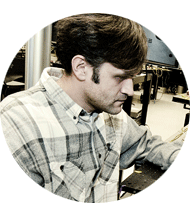
Technologies that can change lives now moving beyond the lab
From flowing massive amounts of digital information to healing pain, scientists in UC's Proof of Concept program are pushing innovations and speeding technology transfer.
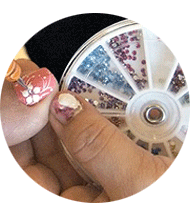
Cancer research stretches into the community
Dollars donated by California tax filers support innovative research to fight breast cancer and tobacco-related diseases.
Rising stars of science
Five UC graduate students and postdoctoral researchers were among innovators named 'Rising Stars of Science: The Forbes 30 under 30.'
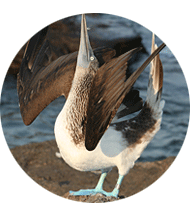
Crossing borders to kick-start novel research
Scientists in Mexico and at UC study the breeding habits of a remarkable seabird for possible clues about behavioral evolution and how animals may develop immunities. The project is one of many research collaborations supported by UC MEXUS.
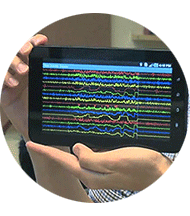
Listening in on the brain
UC San Diego scientists are developing technology that links thoughts and commands from the brain to computers. In addition to neat gadgets like mind-dialed cell phones, devices to assist the severely disabled and a cap to alert nodding-off air traffic controllers, new technology could reshape medicine.
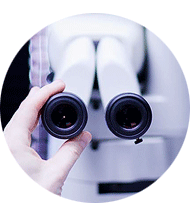
Transforming health care delivery for Californians
The University of California's new Center for Health Quality and Innovation has awarded nine grants totaling $3.4 million to UC faculty and staff to improve patient care throughout the state.
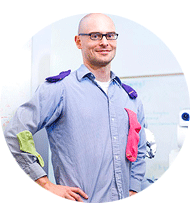
The physics of folding clothes
Pieter Abbeel and his UC Berkeley students have developed a robot to help out with laundry. At the Center for Information Technology Research in the Interest of Society, their aim now is to expand the robotic repertoire to aid surgeons.
UC receives more than $25M in stem cell grants
Nineteen UC scientists received $25.8 million in grants May 4 from the state's stem cell agency to study the underlying biology of stem cells.